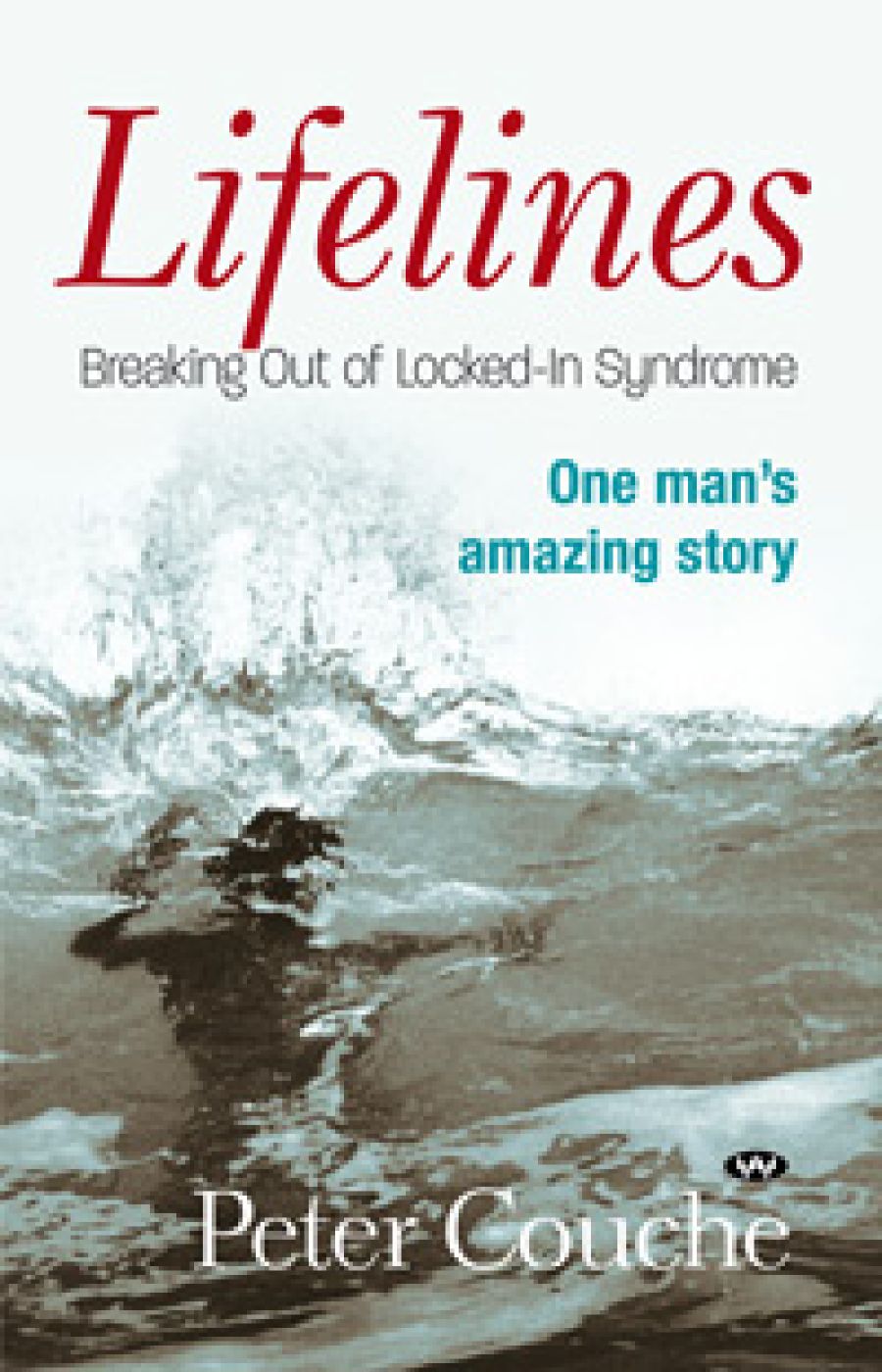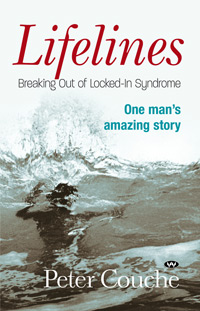
- Free Article: No
- Contents Category: Memoir
- Review Article: Yes
- Article Title: Lifelines
- Online Only: No
- Custom Highlight Text:
As survival memoirs go, Lifelines is unusual in at least one respect. Peter Couche has managed to write this book over a period of thirteen years, while almost completely paralysed and unable to speak after a stroke. With the small amount of movement left in his index finger, he uses a computer to write.
- Book 1 Title: Lifelines
- Book 1 Subtitle: Breaking out of locked-in syndrome
- Book 1 Biblio: Wakefield Press $24.95 pb, 159 pp, 9781862547674
- Book 1 Cover Small (400 x 600):

- Book 1 Cover (800 x 1200):

The first third of the book is his account of his fairly unremarkable life as an ambitious, hard drinking workaholic, the heedless life he blames for his affliction at the age of forty-two with a massive brain-stem stroke. He regales us with stories of the high life, at places such as Jacko’s in London, which ‘specialised in revolting food prepared by Jacko’s good wife Shirl, whose “double, double, toil and trouble” mien reminded us of Macbeth’s witches straight in from the heath’. It is not the most witty and elegant of prose, and much of this part of the book is a bit short on relevance.
The interesting part begins when he is struck down. The point of view of someone who is not expected to recover, who is paralysed and speechless but whose thinking is still unimpaired, is extremely revealing. While he appreciates the many health professionals who have helped him, he doesn’t baulk at complaining of those nurses who ‘have the unerring capacity to be unhelpful’: insensitive, rough, thoughtless, patronising. Couche relates his determination not to remain in the ‘tracksuit and slipper brigade’, to get off the mind-numbing drugs and to regain control of his life. Far from a passive patient, he formulated an ‘exit strategy’ from Adelaide’s Julia Farr Centre. He now lives with his wife in a seaside suburb. Always unwilling to accept defeatist prognoses, he has recently undergone stem cell therapy in the Netherlands and is showing significant though slow progress. Lifelines is not an especially well-written book, but the wonder is that it was written at all.


Comments powered by CComment